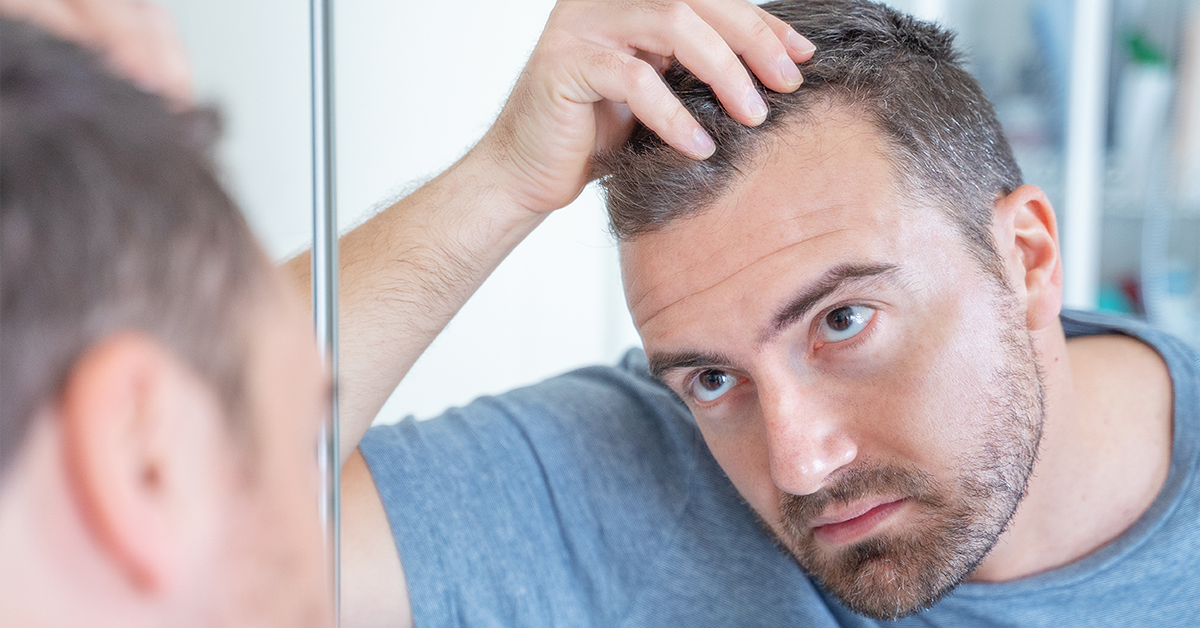When it comes to hair loss, testosterone takes a lot of undeserved blame. The relationship between high or low testosterone and thinning, receding hair is more complex and less direct than many people assume.
Does Testosterone Cause Hair Loss?
Testosterone itself isn’t the problem. Rather, it’s an excess of (or a genetic sensitivity to) a testosterone byproduct called dihydrotestosterone (DHT) that is responsible for the most common form of hair loss – male pattern baldness.
DHT binds to hair follicles, causing them to shrink and produce less viable strands of hair. DHT also shortens your hair’s regular growth cycle. Which means fewer hairs will be in a growing phase at any one time, leading to thinner hair throughout your scalp.
How Do You Know If Your DHT Levels Are High?
Expanding or escalating male pattern baldness is the most visible sign of high DHT levels. Men with high DHT may also experience high blood pressure, high red blood cell counts, excessive sweating, aggression, sleep disturbances, adult-onset acne, and increased facial and body hair growth.
In women, symptoms of high DHT include menstrual difficulties, unusual changes to the genitalia, acne, and excess body, facial, and pubic hair growth.
Does Balding Mean Low Testosterone?
If you are experiencing patchy or patterned hair loss on your scalp, it probably isn’t due to low testosterone. Low testosterone levels are more likely to cause thinning hair throughout your body, along with unpleasant or debilitating symptoms like erectile dysfunction, low libido, weight gain, muscle loss, fatigue, and depression.
Low testosterone could impact your hairline indirectly though. Any time your body is stressed, you might experience telogen effluvium, leading to an overall thinning of the hair on your head.
Will Hair Loss from Testosterone Grow Back?
Depending on how and why testosterone has impacted your hair, you may be able to regrow lost hair or at least slow down the progression of male (or female) pattern baldness. Medications like Finasteride and Minoxidil reduce or block DHT production, staving off follicle miniaturization and allowing for healthier hair growth. There is some evidence that certain foods, supplements, and topical products may aid in blocking DHT as well.
Don’t Wait – Book Your Consultation Today
DHT-related hair loss may be progressive, so it should be addressed as early as possible to preserve your existing hair. Reef Hair offers a full spectrum of treatments and transplantation options for all types of hair loss. In addition to non-invasive products and procedures, we specialize in device assisted ARTAS® and NeoGraft® procedures, as well as classic manual FUE and FUT transplants.
Contact us today to set up a consultation. We will perform a full hair and scalp analysis, as well as discuss potential treatments so you can choose the one that will help you achieve the hairline you desire!


